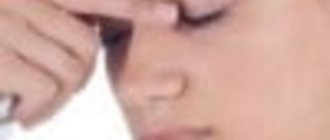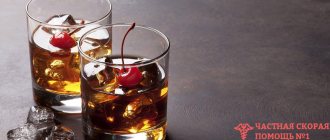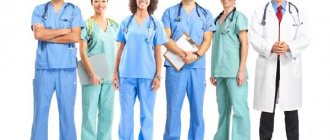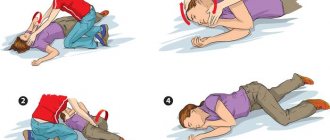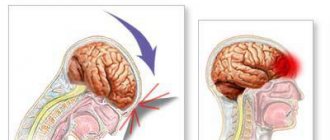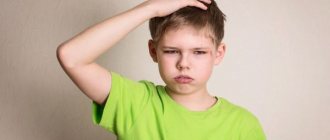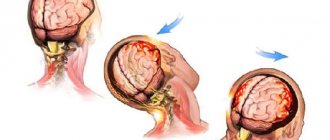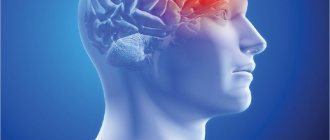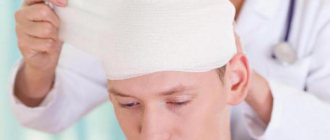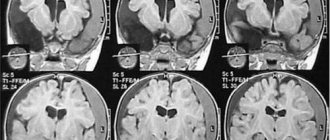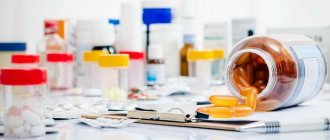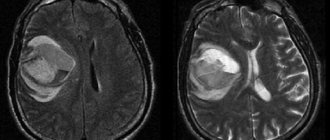The drug Mexidol has a wide spectrum of biological activity. It is effective for various types of hypoxia (with insufficient oxygen supply to the tissue or impaired absorption). The drug increases the body's resistance to oxygen-dependent pathological conditions (shock, cerebrovascular accidents, etc.), improves mnestic functions (memory processes), reduces the toxic effects (damaging effects) of alcohol, etc.
Mexidol (2-ethyl-6-methyl-3-hydroxypyridine succinate) is an antioxidant agent, an inhibitor of free radical processes - a membrane protector, which also has antihypoxic, stress-protective, nootropic, antiepileptic and anxiolytic effects.
Mexidol mechanism of action
The mechanism of action of Mexidol is due to its antioxidant and membrane protective properties.
The drug reduces the formation of peroxide substances that destroy cell membranes, which leads to increased oxygen delivery to tissues and preservation of tissue structures.
Mexidol activates the following enzymes: superoxide dismutase, calcium independent phosphodiesterase, acetylcholinesterase. This improves the transmission of nerve impulses at synapses and binding to ligands. Mexidol increases the formation of neurotransmitters, in particular dopamine.
The drug triggers glycolytic reactions and ensures the oxidative processes of the Krebs cycle during tissue hypoxia, which supports the formation of ATP and creatine phosphate at the required level.
Features of caring for the victim
p, blockquote 12,0,0,0,0 –>
If a doctor diagnoses a patient with a mild stage of gray matter damage, after observation for 24 hours, the person is sent home. For a quick recovery at home, treatment of a concussion involves following a special regimen:
p, blockquote 13,0,0,0,0 –>
- Bed rest: from two days or more.
- Darkening the room from sunlight - with thick curtains.
- Elimination of loud and harsh sounds.
- It is strictly prohibited to watch TV, play games on a mobile phone, work on a computer, or read.
- You can listen to soft music, but not through headphones.
- It is forbidden to be nervous or get into scandals.
- You cannot smoke or drink alcohol.
Medicines for concussion are prescribed if moderate or severe damage to the gray matter is diagnosed. The victims are being treated in a hospital setting.
p, blockquote 14,0,0,0,0 –>
Mexidol effect
The main therapeutic effect of Mexidol is the protection of tissues from toxic forms of oxygen. Ethylmethylhydroxypyridine succinate stabilizes cell membranes by suppressing oxidative processes. As a result, cells retain their structure under conditions of prolonged pathological exposure. Improving membrane transport allows normalizing the functions of brain neurons.
All neurons are isolated by a special membrane that protects the internal structures of the cell from negative external factors.
The result of treatment with the drug is the following effects:
- increasing the body's resistance to stress;
- improvement of memory, attentiveness;
- reduction in the number and severity of seizures;
- normalization of cholesterol levels in the blood;
- increasing resistance to aggressive factors;
- improving metabolism in brain cells;
- normalization of cerebral circulation;
- optimization of blood properties, blood thinning;
- reduction of the phenomena of general poisoning.
"Mexidol" in complex therapy for myocardial infarction improved its collateral circulation in the ischemic zone and increased the resistance of myocardial cells to hypoxia. This multifaceted action of the drug has allowed it to be prescribed for a variety of indications in the clinic of internal medicine.
Vitamins
If you seek medical help in a timely manner and follow the recommendations of a neurologist for the treatment of concussion, the overall prognosis is favorable. Patients with mild to moderate concussion, thanks to properly selected tablets, are able to fully recover and avoid complications.
In patients with severe trauma, timely drug therapy significantly increases the chances of recovery and elimination of neurological symptoms.
When treating a concussion, you need to take the vitamins and minerals necessary for the body. It is recommended to drink the following drugs for concussion:
- folic acid;
- phosphorus;
- magnesium;
- vitamin B.
The appointment must be carried out strictly according to the schedule prescribed by the attending physician. It is Pyridoxine (vitamin B) that very actively promotes the metabolism of amino acids, enzymes and helps the synthesis of neurotransmitters. Vitamins allow magnesium to be better absorbed in the intestines and transferred to the necessary cells. The combination of all components has a noticeable effect on the rapid restoration of damaged brain cells, thanks to which the patient recovers much faster.
Dosage, release forms and manufacturers
The drug is produced in two dosage forms: tablets and injections for intramuscular or intravenous administration. Highlight:
- packs of 5 ampoules with 5 ml of the drug;
- packs of 5 ampoules with 10 ml of product;
- tablets of 125 mg, produced either in blisters of 10 pieces, or in plastic jars of 90 pieces.
Several pharmaceutical companies are involved in the release of Mexidol on the domestic market: Pharmasoft, ASI-pharma, Ellara, etc. The medication is also separately produced for use in veterinary practice, but it is absolutely not suitable for people!
Medications for concussions
Let's get back to the main question - what medications are used for concussions? In fact, the list of these drugs is quite long. These include sleeping pills, painkillers, and sedatives. All of them are necessary for the patient to reduce the manifestation of all existing symptoms. With their help, it is possible to reduce headaches, normalize brain function, eliminate anxiety, get rid of dizziness and insomnia. It should be noted that these medications can be prescribed to the patient, both in the form of injections and in the form of tablets. It all depends on the degree of damage, the age of the patient, as well as his general health.
Painkillers that are prescribed for concussion include pentalgin, sedalgin, maxigan, analgin and some others. Platiphylline with papaverine, Belloid, microzer or tanakan will help get rid of dizziness.
Corvalol, valocordin, motherwort, valerian are all sedative medications. Phenazepam, nozepam, elenium, rudotel and others act as tranquilizers. So that the patient can sleep, he is given reladorm or phenobarbital at night. Quite often, along with the general course of therapy, the patient is also prescribed vascular and nootropic medications. These drugs speed up the process of restoring brain function. Aminolon, picamilon, nootropil and others act as nootropic drugs. The list of vascular drugs is headed by stugeron, sermion and cavinton.
If the patient is concerned about asthenic phenomena, he will definitely be prescribed a drug called pantogam. A course of treatment for a concussion is not complete without multivitamins and tonic medications such as Eleutherococcus extract, ginseng root, and pantocrine. For concussions in older people, anti-sclerotic agents are added to all of the above drugs.
We should not forget that during the course of treatment for a concussion, the patient should lead a healthy lifestyle, stay in bed, eat on time and properly, and not engage in mental activity for at least a certain period of time.
There is a public perception that a concussion is a minor injury. The sufferer will lie down and everything will go away on its own, and at home. Like, anti-concussion pills are a stupid waste of money.
But in fact, such an injury requires competent treatment and the attention of a doctor. And the victim will feel the consequences of the lack of drug therapy for a long time. In case of severe injury, the victim should be hospitalized in the neurological department of the hospital.
Depending on the severity of the injury, the doctor will prescribe drugs from the following groups:
- painkillers;
- nootropics;
- vasotropic agents;
- diuretics;
- drugs to relieve dizziness and nausea;
- sedatives;
- tranquilizers;
- vitamin complexes.
The dosage of active substances, the selection of analogues when adjusting the course - all this is the prerogative of a neurologist or traumatologist. The use of some types of medicines requires the patient to remain in a hospital. After the acute period has subsided, the victim is transferred to gentle medication forms, and treatment continues on an outpatient basis.
Instructions for use
Instructions for use of Mexidol tablets:
- The drug is taken orally, 3 times every 24 hours, 125-250 mg.
- The maximum daily dose is 800 mg (that is, 6 tablets).
- Duration of treatment with Mexidol: from two to six weeks.
- When relieving alcohol withdrawal, treatment lasts from five to seven days. When stopping treatment, the dose of the drug is gradually reduced over 2-3 days.
- The initial dose of Mexidol: 125-250 mg (that is, 1-2 tablets) 1, 2 times a day, during treatment the dose is gradually increased until the therapeutic effect is fully sufficient.
- For coronary heart disease, the indications for a course of treatment range from one and a half to two months.
For a second course of treatment with Mexidol, the best time is spring and autumn.
Treatment of concussion
Like any injury or disease of the brain, a concussion should be treated under the supervision of a neurologist, traumatologist, or surgeon, who monitor any signs and development of the disease. Treatment involves mandatory bed rest - 2-3 weeks for an adult, 3-4 weeks for a child minimum.
In general, try to create the most comfortable environment for the child and adult while the treatment is in the hospital. At home, stress, annoying communication, and excessive mental stress should be completely eliminated.
Doctors recommend limiting children from watching television and computer games. .
As for painkillers and other drugs, they are prescribed only by a doctor in a strict dosage, which changes as soon as the symptoms change and the patient gets better. Sometimes, with a concussion of any degree, insomnia, irritability, apathy and stress are observed. In this case, treatment involves taking antidepressants and sedatives, but for the child the dosage should be limited.
Here are the drugs that are prescribed, including for children, the composition of which has been tried and tested:
If a patient is diagnosed with a mild concussion, it is possible to undergo therapeutic treatment at home.
Medicines
To restore normal brain function, the patient is prescribed medications with different directions; they should be taken according to the doctor’s recommended regimen:
Treating a concussion exclusively at home is not recommended, as there is a risk of not noticing more severe injuries. Even if the concussion was not accompanied by loss of consciousness, it is better to take the patient to the hospital or call a doctor, since only a doctor can prescribe adequate treatment.
But if for some reason it is not possible to receive qualified medical care, then you have to treat such an injury at home.
In this case, the main principles of treatment:
- Rest, healthy sleep, nutritious food and symptomatic therapy.
- Rest means that the patient should not engage in physical labor for at least a week after the injury, preferably spending more time sleeping.
- Increasing the load is only possible gradually and only if you are feeling well, otherwise it will only worsen the patient’s condition.
- Food should not contain strong-smelling ingredients; seasonings should be used in moderation.
- Experiences and violent manifestations of emotions are undesirable for the patient, so you need to protect him from this.
At the first suspicion of injury, you should call an ambulance. In some cases, the victim may feel relatively well without medical attention.
This should not be done under any circumstances - only a specialist can determine whether a concussion actually occurred.
First of all, you need to restore the normal functioning of the nervous system. For this purpose, patients are prescribed nootropic drugs for concussion: Encephabol, Picamilon, Nootropil, etc. In addition, it is necessary to relieve pain - anesthetic drugs in this case are selected individually.
A child's concussion can be treated at home if he has been examined by a doctor, first aid has been provided, and a mild form of concussion has been identified. A prerequisite for treatment at home is bed rest.
These tablets must be taken in dosage according to the child’s age. They are not prescribed to children under two years of age.
After the injury, the child will have a headache for several days. The pain can be relieved with Nurofen. Children under six years of age are prescribed in the form of a suspension, and from six years of age, tablets at a dosage of 200 mg 2 times a day.
Diuretics should be taken for the first three days, from ¼ to ½ tablets, depending on the age of the child. In most cases, Diacarb is prescribed.
Nootropic drugs are prescribed to children in the form of oral solutions (Cerakson, Neuroxon).
Treatment of a concussion in a child at home should be carried out strictly following all instructions in order to prevent the development of complications. Do not look at the fact that symptoms may fade away quickly.
This is not a reason to stop treatment. The child must stay at home for some time; he can go to kindergarten or school no earlier than in a month.
Sometimes, thanks to folk recipes, you can even correct minor errors in drug treatment. Each person can decide for himself which recipes to use.
There are several recipes that are quite effective. Herbal infusions can easily be made at home yourself. Usually take 50 g of each ingredient.
Indications for use
- Mexidol is proposed for the treatment of acute cerebrovascular accidents;
- discirculatory encephalopathy (brain disease caused by chronic cerebrovascular accident);
- vegetative-vascular dystonia (impaired vascular tone due to dysfunction of the autonomic nervous system);
- atherosclerotic disorders of brain function;
- to relieve withdrawal symptoms (to relieve a condition resulting from a sudden cessation of taking drugs or alcohol) in alcoholism and drug addiction;
- in other conditions accompanied by tissue hypoxia.
- With a concussion.
The drug is used for both therapeutic and prophylactic purposes.
Brain concussion
Concussion: symptoms and treatment, first aid for a concussion
The term “concussion” is familiar to almost everyone, but what is really hidden behind it?
CTBI: concussion - what is it?
A concussion is a reversible disruption of the functioning of the brain as a result of mechanical injuries. The concept of “concussion” implies a disruption of the normal functioning of nerve cells as a result of damage to the connections between them. This type of injury occupies a leading position among traumatic brain injuries. According to the international classifier ICD-10, concussion is also included in this list with personal code S06.0.
In a physiological state, the brain “floats” in the cerebrospinal fluid. The impact causes a sharp shock to the brain. The fluid pressure between the brain and the inner cranial wall on one side increases. At this time, negative pressure arises on the other side. As a result, the brain receives a hydraulic (and with a strong shock, a mechanical) shock. Rotational displacements of the brain around its axis are also possible. One of the most important factors in differentiating TBI when diagnosing a “concussion” is the absence of morphological changes in brain tissue (hemorrhages of any intensity, impaired circulation of cerebrospinal fluid, ischemia). With a mild concussion, there is no serious damage, there are no negative consequences in brain function, and the recovery period takes no more than 2 weeks. More severe injuries require the use of drug therapy.
Risk factors for injury - concussion
What mechanical impacts and damage can disrupt (even if only briefly) the normal functioning of the brain? The most common cause of injury is a direct blow (bruise) to the head. However, damage can also be caused by sudden acceleration or braking, during which a sudden movement of the head occurs. Injury can be caused by:
- A bruise received at home, during sports training, as a result of an accident, during a fight, or as a result of a blow with a blunt object.
- A sudden movement of the head as a result of a jump from a height or sudden braking of a car. As for infants, even excessively intense motion sickness can provoke a concussion.
Concussion: symptoms of the injury
Regardless of the presence and severity of the signs listed below, the very fact of injury should make you pay more attention to your health. The most common manifestations of a concussion in an adult are the following symptoms:
- Headache, dizziness.
- General weakness, pallor of the skin (face), increased sweating of the palms and feet.
- Nausea, and in some cases vomiting.
- Noise in ears.
- Problems sleeping, loss of appetite.
- Poor spatial orientation, lethargy.
- Autonomic disorders are often observed - impaired gastrointestinal motility, fluctuations in blood pressure (most often hypotension), irregular pulse and breathing.
- Partial (retrograde) or complete memory loss.
With adequate therapy and successful treatment dynamics, the listed signs of a concussion disappear within 1-2 weeks. If the negative picture persists after this time, complications most likely occur or these are the consequences of untimely treatment.
Contraindications and side effects
Like many domestic “broad-acting” drugs, contraindications exist because the drug has simply not been studied in certain situations, and this is written directly in the instructions. In relation to Mexidol, these are conditions such as:
- pregnancy;
- breastfeeding period;
- childhood.
Also, the drug cannot be used for various “acute failures” of organs associated with the metabolism and excretion of the drug (renal, liver).
Side effects are rare. This may be nausea, headache, dry mouth, drowsiness or, conversely, insomnia. Even more rarely, an allergic reaction occurs.
Treatment
The main method of treatment is medication. The choice of tactics depends on the diagnostic results, including radiography, computed tomography or magnetic resonance imaging, and electroencephalography. The patient is advised to consult an ophthalmologist. Medicines for concussions are prescribed taking into account the diagnostic results. Sometimes studies show no signs of damage.
Against headaches
In order to relieve pain symptoms, doctors will prescribe Analgin or Baralgin. However, if the pain is painful, incessant, and very strong, drugs such as Pentalgin, Medalgin, Maxilgan are used. It is possible to prescribe Ketorolac or other non-steroidal anti-inflammatory drugs.
Against dizziness
The feeling of being dizzy after a concussion occurs very often. It appears after the slightest physical exertion, when changing posture, or in the normal state when a person is lying down. Tanakan, Belloid, Papaverine are used to relieve this symptom.
Anti-nausea
Children are prescribed Cerucal for vomiting and nausea. This drug can also be used in adults. The use of Metoclopramide is indicated. These drugs are prescribed only as symptomatic treatment. When symptoms decrease, they are excluded from therapy.
Against sleep disorders
A concussion is accompanied by sleep disturbances. More often it manifests itself in excessive drowsiness of the patient. It is treated with drugs containing ginseng, echinacea, and eleutherococcus. So, they use Panktocrine. These medications are prescribed in small doses.
In cases where the patient is tormented by insomnia, he is prescribed Phenobarbital. Corvalol and motherwort will help you calm down. Before going to bed, it is useful to drink a cup of green tea or chamomile decoction.
Against psycho-emotional disorders
Tranquilizers will help calm down when the patient develops depression, phobias, irritability, or constant anxiety. Medicines in this group: Nozepam, Phenazepam, Dormiplant.
Diuretics
In adults, for concussions, tablets are used to combat increased intracranial pressure and swelling. In these cases, diuretics are prescribed: Diacarb, Arifon, Veroshpiron.
To stabilize brain function
Medicines such as Nootropil and Piracetam help restore neurons, improve their nutrition, normalize metabolism, and activate thinking and memory. Glycine is prescribed for medicinal purposes.
Mexidol for concussion
Concussions are usually caused by falls, sports, or traffic accidents. A sudden shift in the brain can lead to loss of consciousness. Typically, the longer a person remained unconscious, the more severe the concussion.
Symptoms of a concussion:
- It’s impossible to concentrate and think normally;
- Drowsiness;
- Headache;
- Loss of consciousness;
- Memory loss for a short period of time before or after injury;
- Nausea and vomiting;
- Flashes and spots before the eyes;
- Sleep disturbance.
Drug therapy is not mandatory, however, to quickly restore working capacity, victims are recommended to take diacarb with asparkam, Mexidol, vascular, mild painkillers and sedatives.
When treating a concussion, the general condition of victims usually quickly normalizes during the first, less often the second, week after the injury.
There are contraindications, consultation with a specialist is necessary!
Related posts:
- Antibiotics: what they are and why they are needed Antibiotics are medications used to prevent and treat bacterial…
- What is an antiseptic Antiseptic (lat. anti - against, septicus - rotting) is...
- Valerian as a cure for stress Many people from time to time face various stressful situations,…
- Phenibut - a sedative for normal life Insomnia, constant tension, a state of heightened restlessness, affective instability and irritability...
Painkillers
Signs of a concussion in a child: symptoms, diagnosis and treatment
Tablets from the pharmacological group of non-steroidal anti-inflammatory drugs will help eliminate pain. These include:
Analgin;
Maxigan;
Baralgin;
Diclofenac;
Ketorolac.
They are used in the post-traumatic period for several days. If the patient is prescribed adequate therapy with nootropic and vasotropic drugs, the headaches soon go away. But with massive tissue damage, pain can accompany the patient for a long time. In this case, the pain is regarded as a residual phenomenon after the concussion (in the absence of another cause).
If the pain is so severe that these tablets cannot be relieved, they resort to using strong painkillers (opioids). Their use is possible only in a hospital setting under the supervision of medical staff due to the risk of side effects.
The best drugs depending on the severity of the concussion
With a mild concussion the following is observed:
- fainting;
- dizziness;
- blurred vision.
What to take for a mild concussion:
- analgin;
- maxilag;
- pentalgin;
- glycine;
- Stugeron.
With moderate severity, the following is observed:
- loss of consciousness;
- nausea;
- noise in ears.
What to take if you have a moderate concussion:
- piracetam;
- theonicol;
- analgin;
- phenazepam.
In cases of severe concussion:
loss of consciousness;- vomit;
- dizziness;
- noise in ears;
- short-term memory loss.
What medications are prescribed for severe concussion:
- Corvalol;
- piracetam;
- rudotel;
- tanakan.
For children
The most necessary thing at the beginning of treatment is to ensure complete rest for the child and call an ambulance. They usually prescribe furosemide, piracetam, valerian infusion, and bellaspon as drug treatment.
Contraindications
Concussion is treated with a whole range of drugs from different groups, with injection therapy predominating in the hospital, and tablets and capsules during the rehabilitation period at home. Contraindications to taking tablets are individual for each group of medications, but there are also general restrictions, which include:
- individual intolerance;
- inhibition of bone marrow bleeding;
- IHD: angina pectoris;
- intestinal obstruction;
- glaucoma;
- disruption of the liver and kidneys;
- pregnancy and lactation;
- asthma;
- blood pressure fluctuations;
- childhood;
- sleep and memory disorders;
- atherosclerosis;
- impaired blood viscosity;
- erosive processes in the intestines;
- lactose-lactase deficiency;
- arrhythmia;
- Parkinson's syndrome;
- brain tumor;
- ONMK;
- convulsions;
- pulmonary edema;
- diabetes;
- mastopathy, mammary gland enlargement;
- menstruation disorder.
Side effects
Usually, anti-concussion pills, recommended according to the diagnosis, are well tolerated, but there are a number of negative reactions common to drugs of any group:
- allergy;
- dyspepsia;
- vertigo;
- lack of appetite;
- change in taste perception;
- dry mucous membranes;
- acrocyanosis;
- myopathy;
- tremor;
- impaired visual acuity;
- skin rashes;
- apathy;
- foggy consciousness;
- pastiness;
- drug addiction.
An overdose causes symptoms of acute poisoning: nausea, vomiting, chills, convulsions, interruptions in the functioning of the cardiovascular system.
Chronic drug intoxication manifests itself in pain, disturbances in trophism (up to gangrene), blood circulation, arrhythmias, and sudden changes in blood pressure. Severe cases are fraught with shock or coma, collapse with a fatal outcome. Therefore, all medications for any degree of concussion are prescribed by a doctor after a complete examination of the patient, and he also makes decisions on further tactics for managing the patient. Self-medication is dangerous due to the unpredictability of possible complications.
